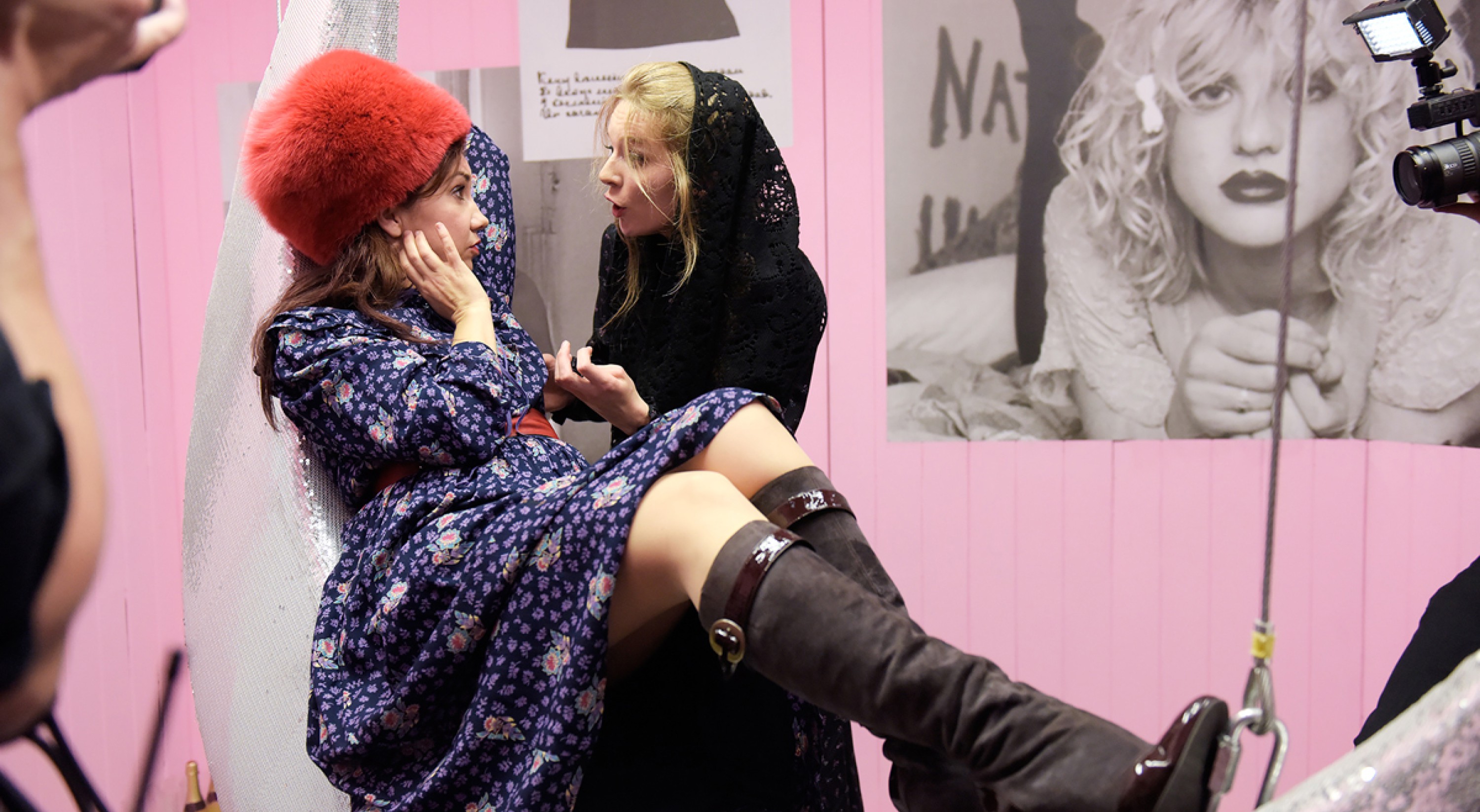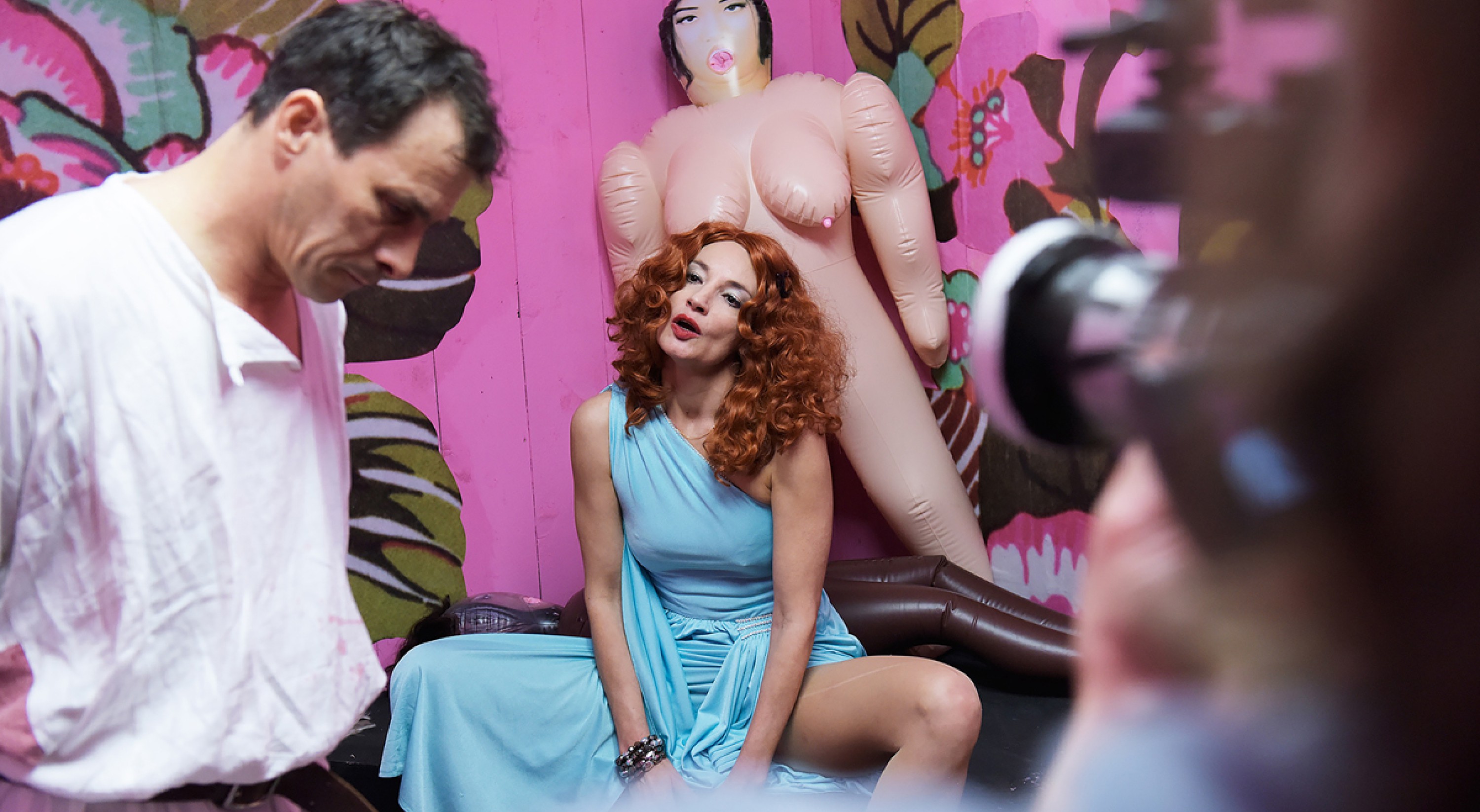Frank Castorf
The Brothers Karamazov
by Fyodor Dostoyevsky
septembersept 7 – 14
Director, Frank Castorf
With Hendrik Arnst, Marc Hosemann, Alexander Scheer, Daniel Zillmann, Sophie Rois, Kathrin Angerer, Lilith Stangenberg, Jeanne Balibar, Patrick Güldenberg, Margarita Breitkreiz, Frank Büttner
Set designer, Bert Neumann
Costume designer, Bert Neumann
Lighting designer, Lothar Baumgarte
Camera, Andreas Deinert, Mathias Klütz, Adrien Lamande
Live editing, Jens Crull
Music, Wolfgang Urzendowsky
Sound designer, Klaus Dobbrick, Tobias Gringel
Boom operator, William Minke, Dario Brinkmann
Dramaturgy, Sebastian Kaiser
A Volksbühne am Rosa-Luxemburg-Platz (Berlin) coproduction ; Wiener Festwochen // In association with MC93 – Maison de la Culture de Seine-Saint-Denis (Bobigny) ; Festival d’Automne à Paris // With support from La Courneuve and Plaine Commune // With support from Adami // First performed on 29th May 2015 at Wiener Festwochen // In partnership with France Inter
Even though he is about to step down from his position at the head of the Volksbühne in Berlin, Frank Castorf remains, at the age of 65 years old, the eternal enfant terrible of German theatre. This status is due in particular to his radical re-workings of texts by Fyodor Dostoyevsky. After Demons, The Idiot, The Gambler, Humiliated and Insulted, and Crime and Punishment, he now turns his attentions to the Russian writer’s final novel, The Brothers Karamazov. What is so striking in Castorf’s production - the last collaboration with his alter ego, the set designer Bert Neumann, who passed away last summer -, is not so much its razor-sharp textual analysis, the keenness of Castorf’s eye both as reader and director, the agility with which he has remodeled its mass of more than one thousand pages, carving up its different passages, and inserting exogenous fragments (notably extracts from Exodus, a novel by the contemporary Russian anarchist writer DJ Stalingrad). It is not the masterly way he directs his actors - among them Jeanne Balibar - to wonderfully charismatic effect. More than anything it is the way Castorf excels in taking hold of a plot - the story of the murder of the deeply unpleasant Fyodor Pavlovich Karamazov by one of his three sons, each of whom represents an archetype of some kind - which is firmly rooted in the context of Russian society in the 1880’s and turns it into an explosive work which is all too relevant in today’s world. Without ever resorting to heavy-handed symbolism or over-complicating the issue, the work succeeds, for the duration of its frenetic six hours and fifteen minutes running time - certain parts of which are given over entirely to video images -, in breathing a sense of urgency into the major metaphysical questions that the novel poses and in bringing out their bewildering echoes with today’s world. In Castorf’s hands, Dostoyevsky’s capital work once again becomes our contemporary.

